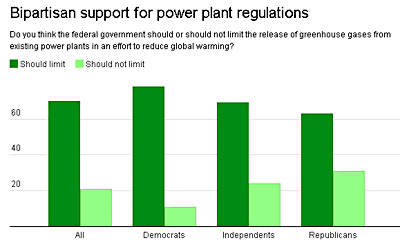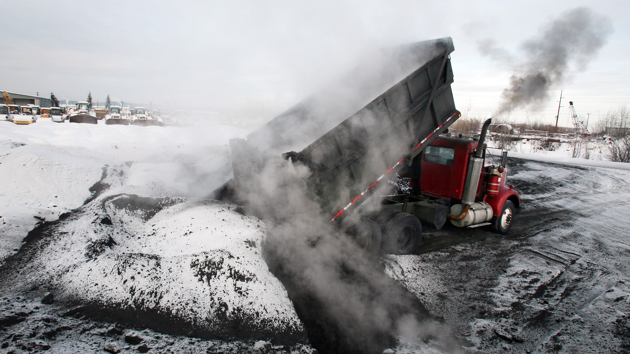
<a href="https://www.flickr.com/photos/imamhartoyo/8306555760/sizes/z/in/photolist-dE2gCC-dE21ZA-beP4C2-4eKFMz-FviPy-eq8ZZz-eq98d8-eq9hyt-eq9cXP-eq99Mv-er5wkL-eq9bet-eq95fX-er5hgW-er5m3j-eq992n-er5ueW-er5mPu-eq9fte-eq93Cp-2K8Ko-xQqp7-vZbAP-3KpJC-vuiNz-hfmSF-3Kte9-6rCoTd-69NReD-69NPM6-fFg8xn-4G5jsi-4DN3oH-beP3de-dReWMR-dReWZH-5eGg56-5eLE8f-5eGeVK-5eGfFH-5eGfqX-5eGfwx-5eLD3s-5eLCXo-5eLDmb-c3Yprb-gsdpZZ-aRCPJK-69NSez-69NTir-69SZr5/">Imam Hartoyo</a>/Flickr
The domestic fracking boom has been widely celebrated as a godsend in the fight against climate change. In 2007, cheap natural gas began replacing dirtier coal as the fuel of choice in US power plants. By 2012, the switchover was annually saving an estimated 86 million tons of CO2, the carbon equivalent of taking 21 million cars off the road. That’s obviously a huge accomplishment, but it comes with a lesser known catch: All of that coal we’re no longer using is still getting dug up, sold off, and spewed into the atmosphere.
The carbon pollution savings from our switch from coal to gas has been more than canceled out by an increase in our coal exports, according to a recent study by Shakeb Afsah of the group CO2 Scorecard. After the domestic market for coal dried up in 2007, US exports of steam coal increased by 83 million tons, resulting in the release of an additional 149 million metric tons of CO2. That’s 73 percent more CO2 than Americans have saved so far by ditching the black stuff.
The study is mentioned today in a great story by AP’s Dina Cappiello, who looks at whether the coal exports will ultimately increase carbon emissions. Coal companies point to studies suggesting international demand for coal is fairly inelastic, meaning that if US coal exports suddenly disappeared, they would simply be replaced by coal from somewhere else. Yet other studies conclude that the US exports depress prices, driving up demand and delaying a switch to cleaner options.
As I’ve previously noted, huge new coal export terminals proposed on the West Coast have become the latest flash points in the climate wars. Cappiello points out that a single ship full of Appalachian coal, exported from Virginia to South America, contains enough greenhouse gas to match the annual emissions of a small American power plant.
UPDATE: Cappiello’s story has spawned new debate over whether coal exports increase emissions. Andrew Revkin weighs in, and CO2 Scorecard responds.

















